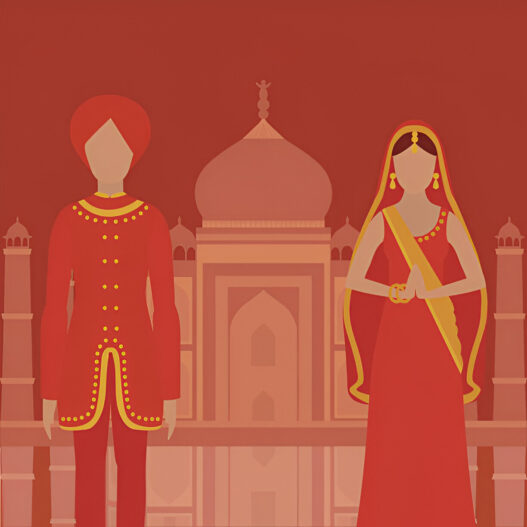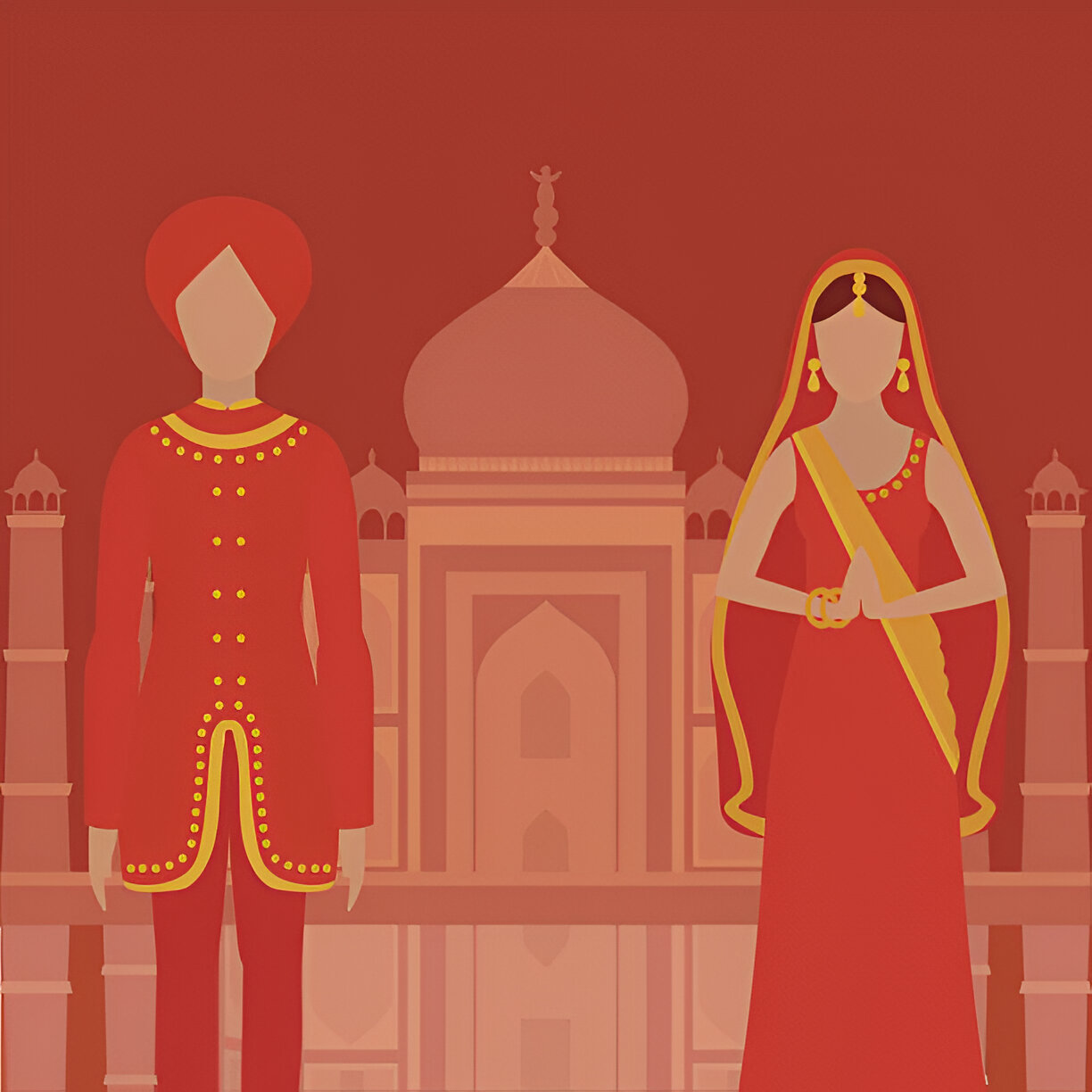This Act applies to all citizens of India, regardless of their religion or faith. It allows for a civil marriage to be solemnized and registered, providing a secular alternative to religious marriage ceremonies. The Act also covers aspects like divorce, restitution of conjugal rights, and related matters.
Key Definitions
-
Degrees of Prohibited Relationship: Specifies relationships within which marriage is not allowed.
-
District: The area for which a Marriage Officer is appointed.
-
District Court: The principal civil court of original jurisdiction.
-
Prescribed: Means prescribed by rules made under the Act.
-
State Government: Includes the administrator of a Union Territory.
Conditions for a Valid Special Marriage
Section 4 of the Act outlines the conditions for a valid marriage under this Act:
-
Monogamy: Neither party should have a living spouse at the time of the marriage.
-
Sound Mind: Neither party should be incapable of giving valid consent due to unsoundness of mind, mental disorder, or recurrent attacks of insanity.
-
Age: The groom must be 21 years old, and the bride must be 18 years old.
-
Prohibited Relationships: The parties should not be within the degrees of prohibited relationships, unless custom permits it.
-
Citizenship: Both parties must be citizens of India domiciled in the territories to which this Act extends.
Marriage Officers
The State Government appoints Marriage Officers for the whole or any part of the State. The Central Government may also specify officers as Marriage Officers for citizens of India in Jammu and Kashmir.
Notice of Intended Marriage
Parties intending to marry under this Act must give written notice to the Marriage Officer of the district where at least one of them has resided for not less than 30 days.
Marriage Notice Book and Publication
The Marriage Officer keeps a Marriage Notice Book, open for inspection, and publishes the notice of intended marriage in a conspicuous place in their office. If either party resides in another district, a copy of the notice is sent to the Marriage Officer of that district for publication.
Objection to Marriage
Any person may object to the marriage within 30 days of the notice publication, on the ground that it contravenes the conditions specified in Section 4. The objection must be in writing and signed by the objector.
Procedure on Receipt of Objection
If an objection is made, the Marriage Officer cannot solemnize the marriage until they have inquired into the matter. The officer must be satisfied that the objection is not valid or that it has been withdrawn. The inquiry must be completed within 30 days of the objection. If the officer upholds the objection, either party may appeal to the district court.
Powers of Marriage Officers
For inquiries, Marriage Officers have the powers of a civil court, including:
-
Summoning and examining witnesses.
-
Discovery and inspection of documents.
-
Compelling the production of documents.
-
Receiving evidence on affidavits.
-
Issuing commissions for examining witnesses.
Procedure on Objection by Marriage Officer Abroad
If a Marriage Officer abroad has doubts about an objection, they must transmit the record to the Central Government for a decision.
Declaration by Parties and Witnesses
Before the marriage, the parties and three witnesses must sign a declaration in the prescribed form. The declaration is then countersigned by the Marriage Officer.
Place and Form of Solemnization
The marriage can be solemnized at the Marriage Officer’s office or another place within a reasonable distance. The marriage can be solemnized in any form chosen by the parties, provided each party says to the other, “I, (A), take thee (B), to be my lawful wife (or husband).”
Certificate of Marriage
After solemnization, the Marriage Officer enters a certificate in the Marriage Certificate Book, signed by the parties and three witnesses. This certificate is conclusive evidence of the marriage.
New Notice
If the marriage is not solemnized within three months of the notice, a new notice is required.
Registration of Marriages Celebrated in Other Forms
Marriages celebrated in other forms can be registered under this Act if:
-
A marriage ceremony has been performed, and the parties have lived together as husband and wife.
-
Neither party has more than one spouse.
-
Neither party is an idiot or a lunatic.
-
The parties have completed the age of 21 years.
-
The parties are not within prohibited relationships.
-
The parties have resided in the district for at least 30 days.
Procedure for Registration
The parties must apply to the Marriage Officer, who publishes a notice and hears objections. If satisfied, the officer enters a certificate in the Marriage Certificate Book.
Appeals
Any person aggrieved by an order refusing registration may appeal to the district court.
Effect of Registration
A marriage registered under this chapter is deemed to be a marriage solemnized under this Act. Children born after the ceremony are deemed legitimate.
Consequences of Marriage Under This Act
-
Severance from Undivided Family: A marriage under this Act severs a Hindu, Buddhist, Sikh, or Jain member from their undivided family.
-
Rights and Disabilities: The parties have the same rights and disabilities regarding succession as those under the Caste Disabilities Removal Act, 1850.
-
Succession: Succession to the property of parties is regulated by the Indian Succession Act, 1925.
Restitution of Conjugal Rights and Judicial Separation
-
Restitution of Conjugal Rights: If either spouse withdraws from the society of the other without reasonable excuse, the aggrieved party can petition the district court.
-
Judicial Separation: Either party can petition for judicial separation on the grounds specified for divorce or for failure to comply with a decree for restitution of conjugal rights.
Nullity of Marriage and Divorce
-
Void Marriages: Marriages that contravene the conditions of Section 4 are null and void.
-
Voidable Marriages: Marriages can be annulled for non-consummation due to willful refusal, pre-marriage pregnancy by another person, or consent obtained by coercion or fraud.
-
Divorce: Divorce can be granted on grounds such as adultery, desertion, cruelty, unsoundness of mind, incurable diseases, renunciation of the world, or presumed death.
Time Limits for Divorce
-
No petition for divorce can be presented within one year of marriage, except in cases of exceptional hardship or depravity.
-
Divorced persons can remarry after the appeal period has expired.
Legitimacy of Children
Children of void and voidable marriages are considered legitimate.
Jurisdiction and Procedure
Petitions under this Act are presented to the District Court where:
-
The marriage was solemnized.
-
The respondent resides.
-
The parties last resided together.
-
The wife resides (if she is the petitioner).
-
The petitioner resides (if the respondent is outside the jurisdiction).
Maintenance and Alimony
The court may order maintenance pendente lite (during the proceedings) and permanent alimony and maintenance. The court can also make provisions for the custody and education of children.
Disposal of Property
The court may make provisions for the disposal of property presented at the time of marriage, which belongs jointly to both spouses.
Appeals
Decrees and orders under this Act are appealable, except for orders on costs. Appeals must be preferred within 90 days.
Enforcement of Decrees and Orders
Decrees and orders are enforced like decrees and orders of the court in its original civil jurisdiction.
Key Takeaways
The Special Marriage Act, 1954, provides a secular legal framework for marriages in India, particularly for interfaith couples. It outlines the conditions for valid marriages, the registration process, grounds for divorce and annulment, and addresses issues related to maintenance, custody, and property. Understanding the key provisions of this Act is crucial for anyone considering a civil marriage in India.




